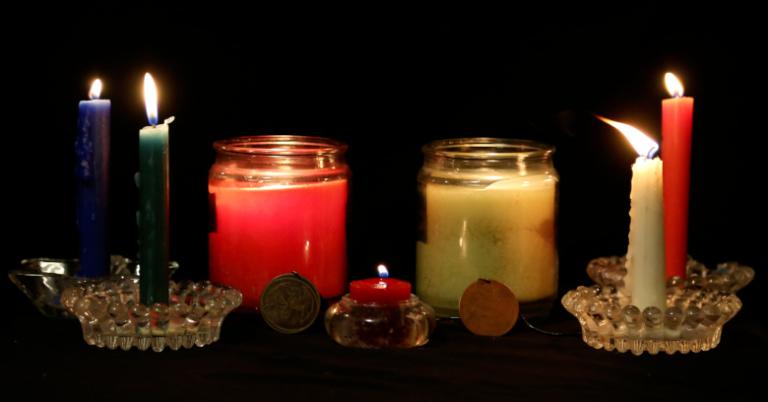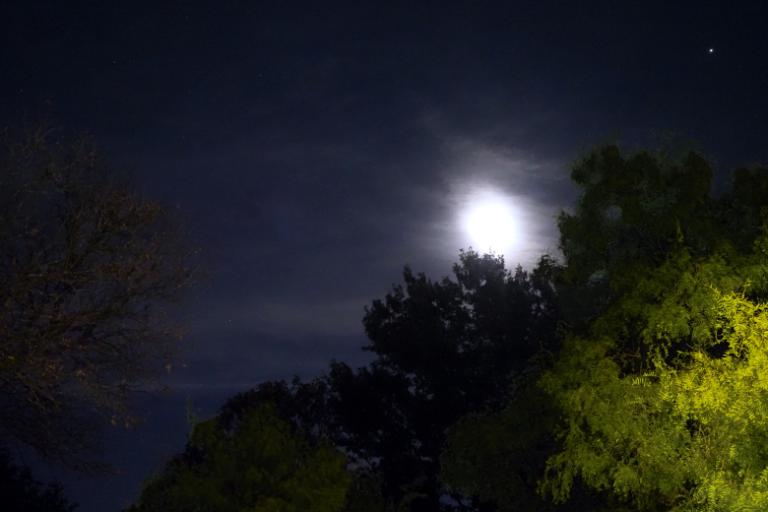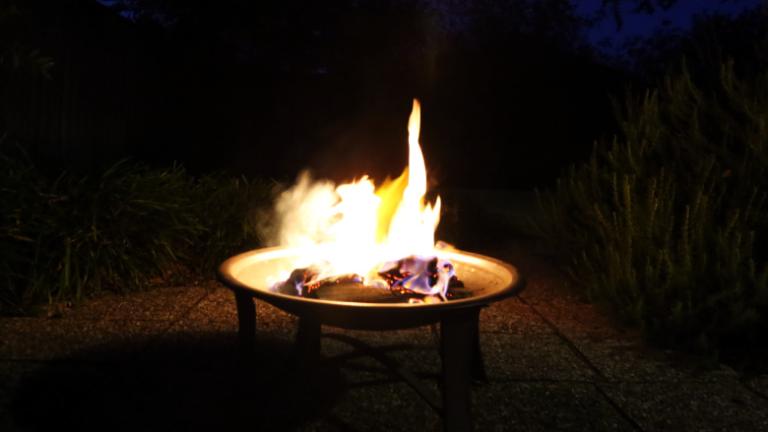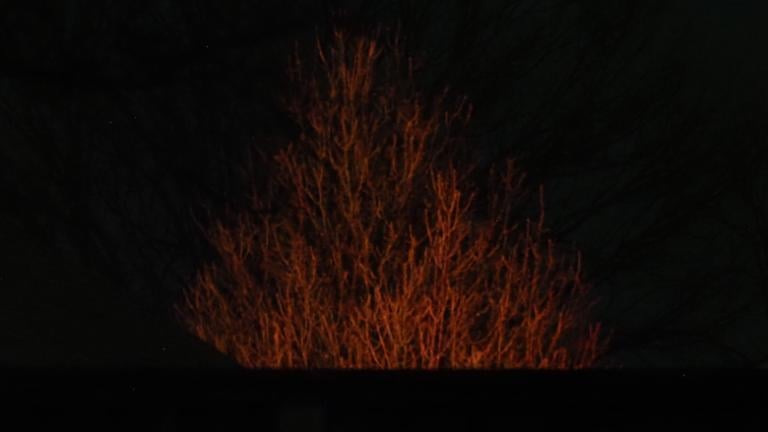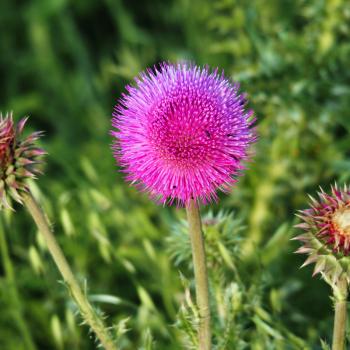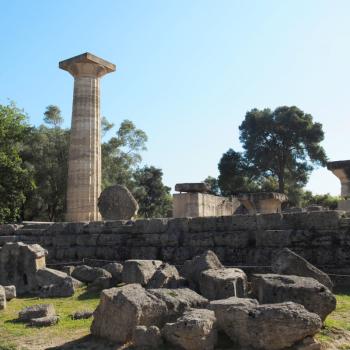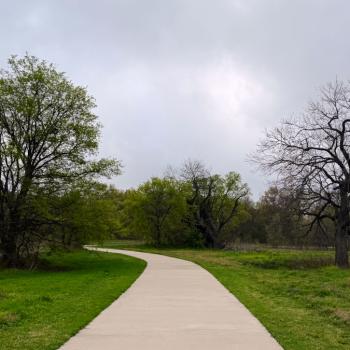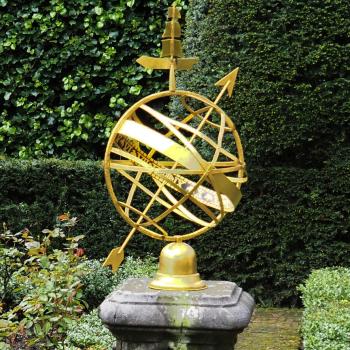Fellow Druid Awen asked a good question on Twitter earlier this week:
“For anyone else who gets post-ritual hangover, how do you take care of yourself?”
I gave a Twitter-length answer, but quickly realized this question deserves a more expansive answer.
Not all rituals lead to post-ritual hangovers, and not all participants get them. I rarely get them after a public seasonal celebration. They sometimes happen after rituals that raise a lot of energy or that involve the strong presence of a God or other spirit. They often happen after rituals that involve journeying or ecstatic experiences – especially if I’m the one having the ecstatic experience.
If you’ve never experienced this for yourself, the idea of a “hangover” after a ritual may seem odd. Once it happens to you, though, you know exactly what it is – and you know you need to do something about it.
Here’s what it’s like for me, and how I deal with it.
The symptoms
Physical exhaustion. There can be a lot of work involved in creating, preparing, presenting, and cleaning up after a big ritual. This isn’t that. Ecstatic ritual can be tiring – physical exertion is one way of shifting consciousness – but the exhaustion of a post-ritual hangover far exceeds what could be reasonably expected. Deep magical and spiritual work is tiring even if your body is sitting motionless in a chair. And that fatigue remains when the ritual is over.
Disorientation. What happens during ecstatic ritual? Does the soul leave the body? Does another spirit enter the body? Does the essence of who and what you are travel around the world, between the worlds, and into the Otherworld? I’ve experienced all of this at one time or another.
Getting “over there” takes a lot of skill and effort. Getting back generally does not. We live in the ordinary world, and when we stop actively working to be “there” we quickly come back “here” like being attached to a huge rubber band.
Mostly. Sometimes we don’t get all the way back. Or we do get all the way back but we’re so caught up in what we were doing we don’t recognize that we are back. It’s like waking up after a really deep sleep. Sometimes it’s like a literal hangover where you drank far too much and can’t quite remember everything you did last night. And you’ve got a massive headache.
Generally, the deeper the ritual the more severe the disorientation when it’s over.
Spiritual afterglow. Not all after-ritual disorientation is unpleasant. Sometimes you’re still caught up in the flow of magic. Or you’re basking in the very close presence of your God or Gods. That’s a good and holy thing. But at some point, it’s time to be fully present in the ordinary world again.
People who consistently can’t get all the way back may end up becoming mystics. As I wrote in 2018, this is your life turned upside down. This is you, unmade and remade into something you may not recognize.
But most times, we can safely and effectively return from our spiritual afterglow – with some help.
What to do immediately after the ritual
Grounding. Energetic grounding and centering can help, but what helps most is simply touching the Earth. My ecstatic experiences tend to end with me on the ground, rather abruptly (the ground is soft, concrete is not – choose your ritual location carefully). Touching the Earth helps drain off excess energy and re-establishes your presence here in this world.
Drink water. Your body needs water constantly, and if you’ve been in ritual you probably haven’t had any recently. Drink some. Drinking water also helps ground and re-establish you in this world. Those who do rituals of any kind with me know that my water bottle is never far away, and when an ecstatic ritual is over it’s the first thing I want – usually before I get up off the ground.
Alcohol or no alcohol? Sometimes I come out of a deep ritual and I need wine or a shot of whiskey. Other times alcohol is the last thing I need. I really don’t know why sometimes it’s one and sometimes it’s the other.
Food. Like drinking water, eating is another act that cares for the body and for the spirit at the same time. Eat something quickly. Simple foods are best: bread, meat, cheese, fruit… though I’ve been known to grab a slice or two of pizza leftover from the pre-ritual dinner.
Debriefing
While they’re happening, magical and ecstatic experiences are absolutely, undeniably real. Once they’re over, memories start to fade and the skepticism we learn from the mainstream culture starts to creep in. It’s important to record what happened as quickly as possible.
If you’re working with a group, talk through what happened. I’ve participated in some rituals where we had note-takers who stayed fully in this world so they could write down everything that was done and said. Their work was extremely helpful.
If you’re working solitary, start writing as soon as possible – while you’re eating, if you can.
Whether you’re working alone or with others, focus the first efforts on recording what happened. You have plenty of time to figure out what it means and what you should do in response. You only have a short time to record the facts.
Winding down
At some point, it’s finally over. You’ve done the ritual, you’ve cared for your body and your spirit, you’ve recorded your experiences, and discussing them further isn’t bringing any new observations or insights. Your body and soul have already returned to the ordinary world – now it’s time to make sure the rest of yourself is here too.
If you’re working with a group, this is when the conversation shifts from what happened and what it means to more ordinary topics: the next gathering, a new recipe you made last week, a book you found interesting or informative. Unstructured conversation helps you wind down.
If you’re by yourself, or if you’re in a group and the conversation is lagging, put on some mindless entertainment: good but mundane music, or a movie everyone knows and likes. With my local friends and co-religionists, that tends to be either The Mummy (the 1999 version with Rachel Weisz and Brendan Fraser) or The Lord of the Rings. What’s needed is something familiar and comfortable that will allow you to relax because you don’t have to think about it.
Sleep
Sleep is how the body restores itself. For all that elite athletes train extensively and eat carefully, they also sleep more than ordinary people. Exercise stimulates growth – rest enables growth. The same is true for recovery from deep spiritual work.
This is why I try to do deep ritual on a Friday or Saturday night – so I can sleep in the next morning with no alarm clock.
Sometimes additional insight comes in dreams. Sometimes I have no dreams (that I remember, anyway) but I wake up and I immediately know the significance of something that happened the night before. Most times I just get the rest I need to start the whole process again.
The older I get the more important this is. I don’t really need any more sleep than I did 20 years ago (though I do need more rest) but the impact of not getting enough sleep is far worse.
The next day
If you do all these things, your post-ritual hangover will be less of a problem, or maybe not a problem at all. But either way there are things you need to do the next day.
Go back over what happened. Re-read your notes, talk to the people who shared the ritual with you, play the events back in your mind. By now your memories will have faded a bit – reinforce them before they fade further. Yes, it really happened. No, you didn’t make it all up.
And now that you’ve recovered from the post-ritual hangover (in part or in whole) you’re in a better place to start interpreting your experiences. You know what happened – what does it mean? What did you see in the Otherworld, and what does that tell you about the way things are? What was Cernunnos or the Morrigan or Loki really trying to tell you? What can you do in response? Is this a one-time thing or do you need to figure out the next steps?
If it doesn’t inspire change – in the ordinary world, in the spirit world, or just in the way you see the world – then the experience was meaningless.
And our deep magical and religious experiences are never meaningless.


